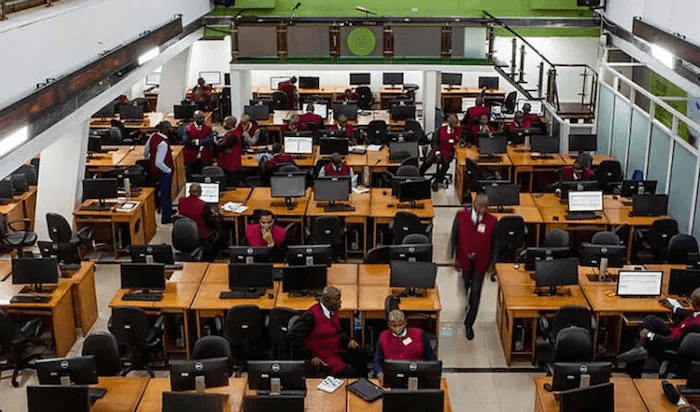Proof of Murder Where the Victim’s Body Cannot be Found
Proof of Murder Where the Victim’s Body Cannot be Found
In the Supreme Court of Nigeria
Holden at Abuja
On Friday, the 7th day of March, 2025
Before Their Lordships
Helen Morenikeji Ogunwumiju
Emmanuel Akomaye Agim
Haruna Simon Tsammani
Habeeb Adewale Olumuyiwa Abiru
Muhammed Baba Idris
Justices, Supreme Court
SC/1051/2018
Between
BETTY STEPHEN APPELLANT
And
1THE STATE RESPONDENT
(Lead Judgement delivered by Honourable Haruna Simon Tsammani, JSC)
Facts
The Appellant was the first accused before the trial Court on four counts: conspiracy to steal a child, conspiracy to commit murder, child stealing, and murder. It was alleged that the Appellant abducted one Ifueko, a child of about three years, and handed her over to the second accused for a money-making ritual. Subsequently, the child disappeared and was never seen again. The Appellant, who was apparently in custody of the child, failed to provide any satisfactory explanation for the child’s disappearance. This matter was reported to the Police, who investigated and arrested both the Appellant and his co-accused. The Appellant and the co-accused persons made confessional statements at the Police station, which were tendered in evidence and admitted after the conduct of a trial-within-trial to test their veracity.
The Appellant and other accused persons were tried and convicted on all four counts. Dissatisfied with the conviction, the Appellant appealed to the Court of Appeal, which dismissed the appeal. The Appellant further appealed to the Supreme Court.
Issues for Determination
The Appellant and the Respondent raised two similar issues for determination of the appeal, thus:
i. Whether the learned trial Judge was not in error when he admitted Exhibit “B 1” in the main trial (after the mini trial), even when the Plaintiff’s witness who testified as PW 1 in the mini trial admitted that one Inspector Ogunsare was the maker or recorder of same, and no proper foundation was laid as to his whereabouts?
ii. Whether the learned Justices of the Court below were not in error, when they affirmed the position of the trial Court that the Respondent proved beyond reasonable doubt the four count charge against the Appellant, considering the totality of the evidence led in this case at the trial Court?
Arguing the appeal, Counsel for the Appellant submitted on issue one that the trial court erred in admitting Exhibit B1, an extra-judicial statement, without properly determining its voluntariness through a mandatory trial-within-trial. Citing cases such as DAURA & ANOR v THE STATE (1980) 12 NSCC 334 AT 345, Counsel emphasised that whenever voluntariness is questioned, the trial Judge must assess the statement’s admissibility by hearing evidence on whether it was made voluntarily and free from duress, threats, or undue influence. Counsel submitted further that, the prosecution bears the burden of proving beyond reasonable doubt that the statement was voluntary, and the accused need only raise doubt on voluntariness to challenge admission. He contended that in this case, the prosecution failed to discharge this burden, noting that PW4, who testified on voluntariness, lacked proper foundation as he was neither the recorder of the statement nor shown to satisfy the conditions under Section 39 of the Evidence Act, 2011. The absence of the actual recorder’s testimony and any explanation or evidence negating torture or coercion, further undermined the prosecution’s case.
In response, the Respondent maintained that the statement was properly admitted after a valid trial-within-trial, highlighting that the Appellant volunteered the statement in English, which was also recorded in English, removing the necessity to call the original recorder. PW4 was part of the Police team involved and competent to testify on the voluntariness of the statement. The prosecution was not obliged to call multiple witnesses, when one eye witness suffices. Counsel referred to relevant authorities such as MICHAEL OLOYE v THE STATE (2018) LPELR-44775 (SC), to support this position. The Respondent submitted further that the assertion of torture by the Appellant was contradicted by the circumstances, noting the signing of the statement and hospital visit afterward. Hence, the confessional statement was rightly admitted and properly relied upon by the courts in convicting the Appellant.
On issue two, it was argued for the Appellant that the prosecution bears the burden to prove the guilt of the accused person beyond reasonable doubt, and this burden never shifts. Citing ONUGBOGU v THE STATE (1974) 9 NSCC 356 and AIGBADION v THE STATE (2000) 7 NWLR (PT.666) 686, as well as Section 36(5) of the Constitution oF Federal Republic of Nigeria, 1999 (as amended) and Section 135(1) of the Evidence Act, 2011, Counsel argued that the evidence of the Respondent was conflicting, insufficient, and raised reasonable doubt. It was contended that the testimony of PW1 was inconsistent with his earlier Police statement (Exhibit A), and no explanation was given for these contradictions, relying on authorities including UKPONG v THE QUEEN (1961) 1 SCNLR 53 and NWANKWOALA & ANOR v THE STATE (2006) 14 NWLR (PT. 1000) 663. Also, PW2 and PW3 did not implicate the Appellant in their evidence, with PW 3 notably not making any statement to the Police. Citing OHWOVORIOLE v FEDERAL REPUBLIC OF NIGERIA (2003) 3 NWLR (PT. 803) 176 and GBOKO v THE STATE (2009) 17 NWLR (PT. 1063) 272, the testimony of PW 5 was described as hearsay, and therefore, inadmissible under Section 38 of the Evidence Act, 2011. Counsel also criticised the Police investigation led by PW4 as incomplete and shoddy, referencing Section 214(2)(b) of the 1999 Constitution, the Police Act, and OLATINWO v THE STATE (2013) 8 NWLR (PT. 1355) 126. He posited that the prosecution failed to conduct further investigations after the Appellant’s denial, relying solely on the confessional statement (Exhibit B1). Counsel argued that no prosecution witnesses were eyewitnesses to the commission of the offence, and urged that the case was built on inadmissible hearsay. Regarding the victim’s presumed death, Counsel submitted that under Section 164(1) of the Evidence Act, 2011, death cannot be presumed death until the end of seven years, and since the case commenced within that period, the trial court erred in its presumption.
Reacting to the submissions above, the Respondent argued that the confession was voluntarily made and properly admitted after a trial-within-trial. It was stressed that the lower courts made concurrent findings of fact, which the Supreme Court should not disturb except if perverse or unjust, citing ARCHIBONG v STATE (2006) 14 NWLR (Pt.1000) 349. The confession was corroborated by credible evidence, and it is settled law that a direct, positive, and unequivocal confession may ground a conviction alone, in line with the decision in AKPA v STATE (2008) 14 NWLR (PT.1106) 72. The Respondent maintained that the offences of conspiracy, child stealing, and murder were proved beyond reasonable doubt under the Criminal Code Law applicable to Edo State. Circumstantial evidence and the presumption of death were appropriately relied on, guided by the decision in MUSTAPHA MOHAMMED & ANOR v THE STATE (2007) LPELR-1894 (SC). PW1’s minor inconsistencies were immaterial to the overall evidence, citing OGUNBAYO v THE STATE (2002) 15 NWLR (Pt.789) 76. Counsel urged that the Police investigation was proper and sufficient, to support the convictions.
Court’s Judgement and Rationale
Deciding the first issue, the Supreme Court first clarified the point that an accused may be convicted solely on his confessional statement, so long as the statement is shown to have been made voluntarily, and is direct, positive, unequivocal, and duly proved at trial. It is the reasoning of the court that PW 4 in whose presence the confessional statement was made is competent to testify on the circumstances under which the statement was made, even though PW 4 was not the person who recorded the statement. Regarding the Appellant’s argument that the prosecution’s failure to call the recorder amounted to withholding evidence under Section 167(d) of the Evidence Act 2011, the Supreme Court held that “it is the duty of the prosecution to call such number of material witnesses as it requires to prove its case beyond reasonable doubt, and it is not within the power of the defence to dictate for the prosecution, which witness to call or not to call.” Their Lordships reasoned that since there is another witness to give testimony on the Appellant’s voluntariness in making the statement, the evidence of the recorder of the confessional statement is dispensable, and failure to call the recorder did not amount to withholding of evidence. The court concluded that based on the trial-within-trial evidence, the Appellant’s confessional statement was voluntarily made, as the Appellant did not successfully challenge the evidence of PW 4.
Regarding the second issue on evaluation of evidence, specifically on whether the charge of murder could be sustained even though the victim, Ifueko Stephen, was not found. The Supreme Court held that for the fact of death to be proved by circumstantial evidence, the evidence relied upon must clearly, positively, and unequivocally suggest that the victim of the offence charged is dead. The fact of death, may be presumed by circumstantial evidence – OTKIR v A-G OF BENDEL STATE (1986) 2 NWLR (PT. 24) 648. The court held further that the fact of death can be proved by circumstantial evidence, even when neither the body nor any trace of the body could be found – ADEPETU v STATE (1998) 9 NWLR (PT. 565) 185 AT 207.
In the present case, the Court found that the Appellant confessed to delivering the victim to the second accused person for ritual purposes involving mutilation of the victim’s body, including the cutting of the victim’s fingers and removal of hair, in exchange for the sum of N1,500,000.00. Since the child could not be found, the Court reasoned that “the only reasonable and logical conclusion is that, the child died and the remnant (body) secretly discarded where it has not been found.” Their Lordships, therefore, concluded that based on the circumstantial evidence and Appellant’s confessional statement, the offences for which the Appellant was charged were proved beyond reasonable doubt.
Accordingly, the court dismissed the appeal and upheld the judgement of the lower courts.
Appeal Dismissed.
Representation
O.T. Okeke (Legal Aid Pro bono Counsel) for the Appellant
S.M. Iteinmo (On the fiat of the HAG of Edo State) for the Respondent.
Reported by Optimum Publishers Limited, Publishers of the Nigerian Monthly Law Reports (NMLR)(An affiliate of Babalakin & Co.)
In the Supreme Court of Nigeria Holden at Abuja On Friday, the 7th day of March, 2025 Before Their Lordships Helen Morenikeji Ogunwumiju Emmanuel Akomaye Agim Haruna Simon Tsammani Habeeb



